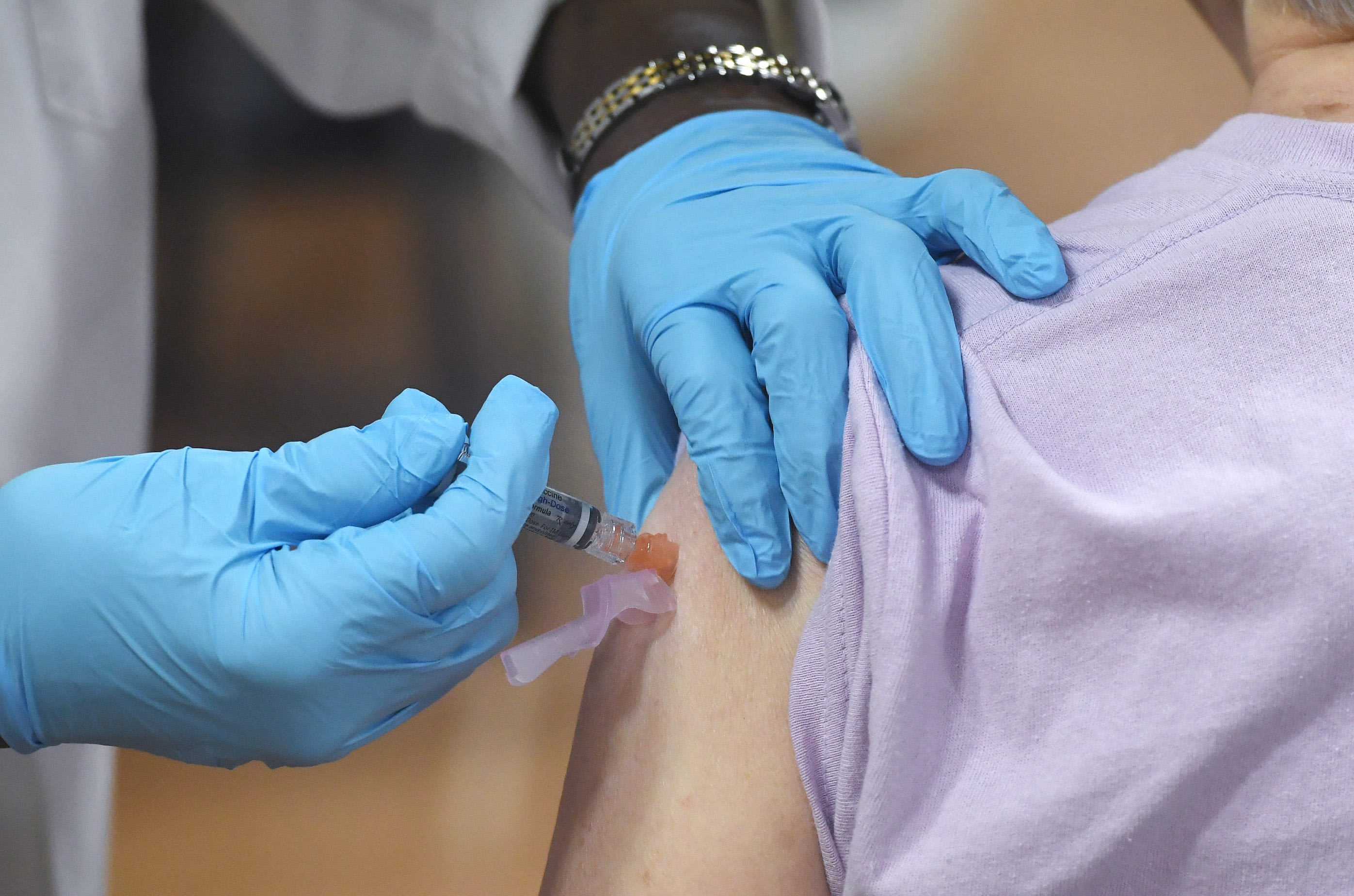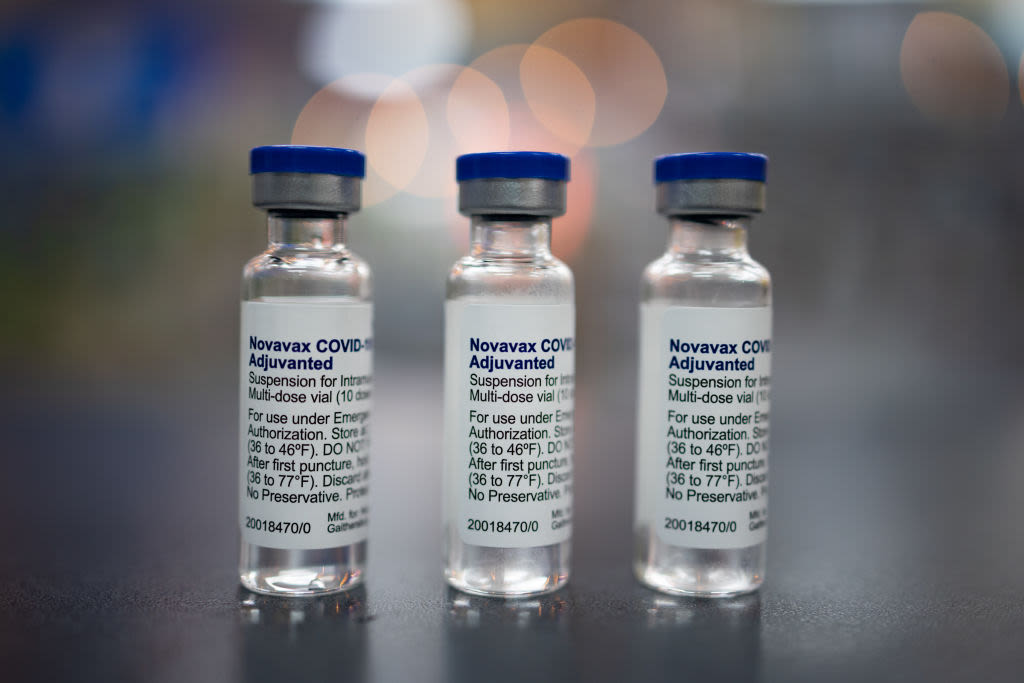Search results
Feb 7, 2024 · Here’s what to know about how long immunity lasts, long COVID, and more. Four years after the emergence of SARS-CoV-2, experts know more about mutating strains, vaccine effectiveness, and long COVID. Here's what it means for you. By Bridget Balch, Staff Writer. Feb. 7, 2024.
News about FDA, Lee Health, flu shot
News about COVID-19, COVID, Novavax
Also in the news
- Overview
- How natural immunity works after COVID-19 develops
- Omicron’s BA.4 and BA.5 subvariants evading immunity
- How vaccine-induced immunity after receiving immunization works
- A need for booster shots
- Vaccination in kids
- How hybrid immunity protects the most
How long immunity lasts can depend on many factors, including whether it is natural, vaccine-induced, or hybrid, among others. There isn’t a specific length of time it lasts and it may vary by person.
•Immunity can occur naturally after developing COVID-19, from getting the COVID-19 vaccination, or from a combination of both.
•In June 2022, the CDC reported that BA.4 and BA.5 subvariants of Omicron became the predominant subvariants in the U.S.
•Infections with variants before Omicron or being fully vaccinated appear to be less effective at preventing immunity against BA.4 and BA.5.
•Scientists are learning more and more about the length of immunity after developing COVID-19, getting the vaccine, or both.
Whether you’ve recovered from COVID-19, received the vaccine, or both, understanding immunity and how long it lasts can help give you important insight into how you can interact safely with others during the pandemic.
After a person acquires a virus, the immune system retains a memory of it.
The National Institutes of Health explains, “Immune cells and proteins that circulate in the body can recognize and kill the pathogen if it’s encountered again, protecting against disease and reducing illness severity.”
The components of immunity protection include:
•Antibodies are proteins that circulate in the blood and recognize foreign substances like viruses and neutralize them.
•Helper T cells help to recognize pathogens.
•Killer T cells kill pathogens.
In June 2022, the Centers for Disease Control and Prevention (CDC) reported that BA.4 and BA.5 subvariants of Omicron became the predominant subvariants in the U.S.
Infections with variants before Omicron or being fully vaccinated appear to be less effective at preventing immunity against BA.4 and BA.5.
A study out of Harvard Medical School published in July 2022, found that previous infection from COVID or having been vaccinated doesn’t provide as much protection against the BA.4 and BA.5 variants as either did for the original coronavirus strain.
However, another study in Qatar that has not been peer-reviewed found that immunity developed after recovering from Omicron was 80% effective against reinfection with the BA.4 or BA.5 subvariants.
Researchers from the Harvard study note that vaccination should still provide protection against severe illness even with infection from BA.4 or BA.5.
The CDC stated in July that currently available vaccines, especially in conjunction with their boosters, may provide protection against serious illness caused by the currently circulating BA.5 variant.
Currently, the four vaccines authorized for use in adults in the United States are from Pfizer-BioNTech, Moderna, Novavax, and Johnson & Johnson. Although the Johnson & Johnson vaccine should only be considered in some cases due to risk of serious adverse events, states the CDC.
The CDC reported that vaccine effectiveness studies of people who develop COVID-19 in the real world, continue to show evidence that mRNA COVID-19 vaccines (Pfizer and Moderna) offer similar protection as they proved in clinical trial settings.
For instance, in clinical trials, the Moderna vaccine was about 94% effective at preventing COVID-19 and the Pfizer-BioNTech vaccine was 95% effective.
Real-world data also show that Pfizer and Moderna vaccines are effective at reducing the risk of COVID-19, including severe illness, by 90% or more in people who are fully vaccinated. Moreover, CDC data from July 2022 showed that a third and fourth COVID-19 vaccine dose provided adults with healthy immune systems and substantial protection during the Omicron evolution in early 2022.
The Johnson & Johnson vaccine was 66.3% effective in clinical trials and according to a study published in March 2022, it was 76% effective in preventing COVID-19 infections and 81% effective in preventing COVID-related hospitalization.
Time is needed to track how well Novavax does in the real world. However, results from a Phase 3 clinical trial that included nearly 30,000 adults in the United States and Mexico found that it demonstrated 90.4% efficacy in preventing symptomatic COVID-19 disease, according to the National Institutes of Health.
As of May 19 2022, the CDC recommends that everyone 5 years and older get a booster shot. This does not apply to the Novavax vaccine, which is not authorized for use as a booster dose at this time.
This allows for a single booster dose of the Pfizer and Moderna COVID-19 vaccines that may be administered at least 5 months after completion of the primary series for most people or at least 3 months after the final dose in the primary series for those who are moderately or severely immunocompromised. Additionally, the CDC recommends a second booster of either Pfizer-BioNTech or Moderna COVID-19 vaccine at least 4 months after the 1st booster for people 50 years and up or those who are 12 and older who are moderately or severely immunocompromised.
Adults up to 49 years old who received the Johnson & Johnson vaccine for both their primary dose and booster can get a second booster of either Pfizer-BioNTech or Moderna COVID-19 vaccine at least 4 months after their 1st booster. However, the second booster is not required to be considered up to date for this age group who got the Johnson & Johnson vaccine for both their primary dose and first booster.
While the CDC states that COVID-19 vaccination remains effective in preventing severe disease, it points to data that suggest vaccination becomes less effective over time, especially in people 65 and older and at preventing infection or milder illness with symptoms.
Schaffner added that while the vaccines are explicitly designed to create a large immune response, they are not 100% effective, and therefore the need for a booster shot may become standard like it is annually for the flu, especially to protect against new variants of the virus that causes COVID-19.
Additionally, the FDA authorized that each of the available COVID-19 vaccine boosters can be mixed and matched in eligible people following completion of primary vaccination.
On June 17, 2022, the FDA expanded the emergency-use authorization (EUA) for the Moderna and Pfizer-BioNTech COVID-19 vaccines to children down to 6 months old.
“Children are less apt to get serious disease, but they can get serious disease,” said Schaffner.
According to Unicef, over 17,200 people under the age of 20 have died from COVID, of which 53% were children aged 10 to 19 and 47% were aged 0 to 9.
“[For] those families, it’s 100%,” said Schaffner.
Getting children vaccinated is crucial as more variants like Omicron develop, and existing ones like Delta still circulate, he said.
“We all know about Omicron and we got very excited about it, but… [Delta] is much more contagious than the original strain, and it’s clearly moving into the pediatric population now, so its behavior was different from the original strain, and that gives even more reason to vaccinate children,” he said.
One study found that hybrid immunity can provide protection for more than a year.
“We know that after you’ve had natural infection, and then get vaccinated, you get a terrific boost in your antibody levels. And very high antibody levels traditionally have been associated with longer duration of protection. And in the laboratory, it looks as [if] those antibodies also provide a better protection against variants,” said Schaffner.
According to current CDC data, 78.7% of people have had at least one dose of the vaccine
and as of April 2022, at least 60% of adults and 75% of children have been exposed to the virus. Although, the
- Cathy Cassata
Oct 21, 2020 · If you were severely ill with COVID-19, you should stay in home isolation for up to 20 days after your symptoms began and consult your doctor about the best time for a flu shot. Technically, it’s OK to have a flu shot if you only have a mild case of COVID-19, the CDC says.
- (855) 303-3627
Jun 14, 2024 · Once you have had COVID-19, your immune system responds in several ways. This immune response can protect you against reinfection for several months, but this protection decreases over time. People with weakened immune systems who get an infection may have a limited immune response or none at all.
Aug 13, 2024 · Current COVID-19 guidelines recommend most people can return to work 24 hours after their symptoms have cleared up. Take precautions for five days after.
Jan 26, 2021 · The immune systems of more than 95% of people who recovered from COVID-19 had durable memories of the virus up to eight months after infection. The results provide hope that people receiving SARS-CoV-2 vaccines will develop similar lasting immune memories after vaccination.
Jan 19, 2024 · COVID-19 immunity may last for over a year following natural infection, vaccination, or both. However, some emerging variants can evade immune responses, so a person requires booster doses to...





